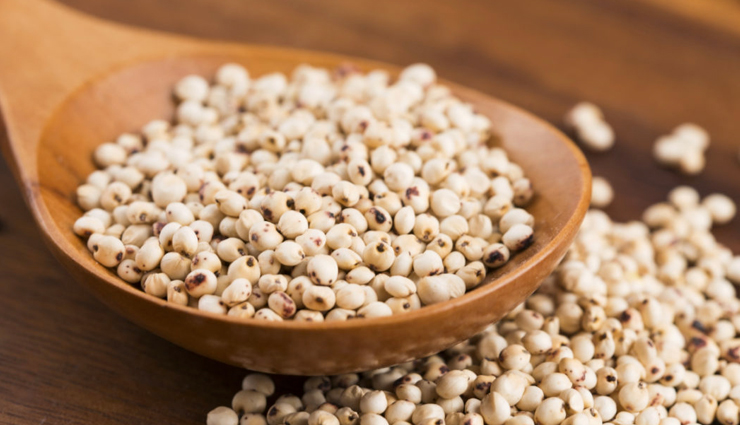- Home›
- Healthy Living›
- 6 Least Known Health Benefits Of Sorghum
6 Least Known Health Benefits Of Sorghum
By: Kratika Maheshwari Wed, 23 Nov 2022 08:49:11

Sorghum packs quite a healthy punch for such a small grain. This nutritious food, a staple in parts of Africa and India, comes in many varieties. The wholesome grain is quite versatile too, moving past its traditional use in porridges to finding a place in breads, cereals, and even breakfast or snack bars. If you are keen to try out sorghum, we’ve got the benefits lined up to convince you!

# Is Rich In Essential Nutrients
Sorghum is a nutrient-dense grain. Just 100 grams of the grain brings you 10.6 grams of protein. This grain is also rich in minerals like magnesium and iron, with 100 grams providing 39.2 % and 18.6% of your daily value requirement, respectively. But that’s not all. Sorghum is also rich in B vitamins like thiamine, niacin, and vitamin B6, with 100 grams meeting more than 20% of the daily value of these important nutrients. From metabolism and cell division to energy production, these nutrients are involved in many vital bodily functions.

# Is A Good Source Of Fiber
Sorghum contains a fair amount of fiber. A diet rich in fiber is linked to a lower risk of stroke, heart disease, bowel cancer, and diabetes. It can also make you feel fuller, aid digestion, and ward off constipation. Adults should ideally get about 30 grams of fiber every day. So if you’re looking to up your fiber intake, sorghum can pitch in. Depending on the variety, 100 grams of this grain can give you anything between 8.8–11.1 grams of fiber.

# Contains Protective And Anti-Aging Antioxidants
Sorghum contains bioactive compounds such as anthocyanins and phenols which have antioxidant properties. This means that they can curb the damaging effects of free radicals. We’re all exposed to free radicals produced by the body when food is turned into energy or through contact with environmental toxins, alcohol, and processed foods. These harmful compounds are thought to have a part in aging as well as a wide array of illnesses such as heart disease, cancer, and diabetes. It is therefore important to tank up on antioxidant-rich foods which can boost your body’s defenses against free radicals. Choose whole-grain rather than refined sorghum since the antioxidants are present mainly in the bran.

# Is Gluten-Free
If a gluten allergy or celiac disease is causing your body to reject gluten, you need to explore other whole grains. Cue sorghum! This grain is gluten-free and can help you sidestep the digestive issues gluten intolerance can cause. Even if you want to shake things up a bit and eat gluten-free foods once in a way, sorghum can be a nutritious alternative to wheat.

# Helps Tackle Obesity
Sorghum can be your ally in your weight loss efforts. One animal study looked at the effect that resistant starch from sorghum on subjects fed a high-fat diet. It was found effective in both preventing and treating obesity. Resistant starch present in sorghum can stimulate the secretion of leptin, the hormone which staves off hunger by letting your brain know that you’re full. It also works by improving intestinal flora, a community of microorganisms in your gut that helps your digestive system function optimally.

# May Help Control Blood Pressure
In addition to cutting back on salt, you also need adequate amounts of potassium to help reduce high blood pressure and prevent hypertension. And sorghum can contribute to meeting your potassium requirements – just 100 grams can give you 7.7% of the daily value for this mineral.
Moreover, research shows that a protein known as kafirin present in sorghum can be broken down into constituents which inhibit the angiotensin-converting enzyme. This enzyme plays a role in narrowing your blood vessels, so by countering it, sorghum can help relax your blood vessels and lower blood pressure. Including sorghum in your daily diet may, therefore, help keep your blood pressure under control.





